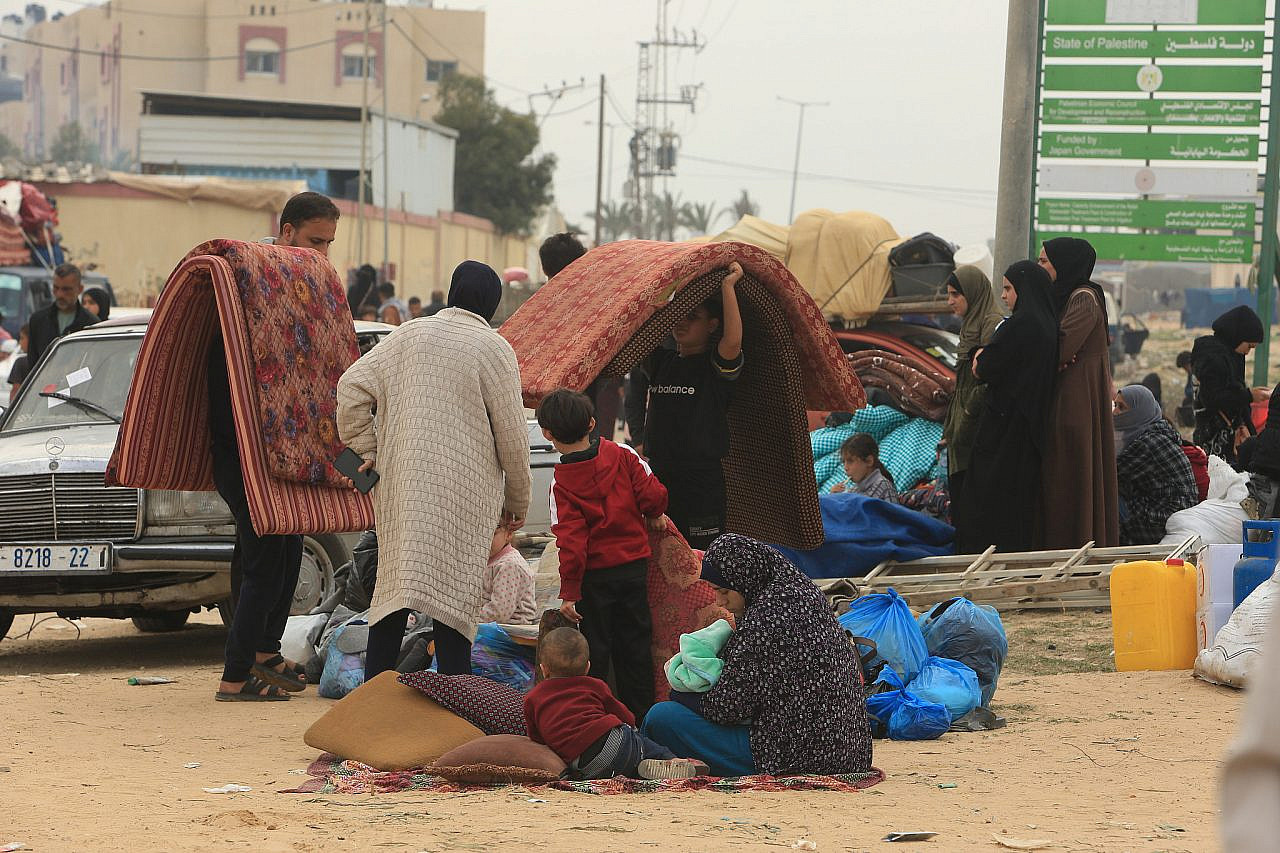With private brokers charging thousands of dollars to coordinate passage through Rafah Crossing, most Gazans are being priced out of safety.

Palestinians with foreign passports leave Gaza to Egypt via the Rafah Crossing, southern Gaza Strip, February 6, 2024.
After months of a war like no other in Gaza — a war of endless bombing, displacement, hunger, and thirst — those who have lost hope of finding safety in the Strip are desperately trying to find a way out. But escaping death in Gaza comes at a very high price — one that most Palestinians are, quite literally, unable to afford.
For Palestinians who hold foreign passports, getting out of Gaza has been relatively feasible. Since the beginning of the war, numerous governments have asked Egypt to open the Rafah Crossing in the south in order to facilitate the safe passage of these dual citizens (the Erez Crossing into Israel from Beit Hanoun in northern Gaza has been closed by the Israeli authorities since October 7.) After weeks of pleading and diplomatic efforts, hundreds of dual citizens have been able to slowly leave Gaza, hoping to return once hostilities end.
But more than 2.2 million Palestinians remain stuck inside the Strip, living under bombardment and siege with no foreign government to help them. To have their names added to the daily list of people permitted to exit through Rafah, these residents are being forced to pay exorbitant fees to one of the private travel agencies in Gaza or Cairo, which then work with Egyptian security forces to coordinate their flight from the Strip.
Before the war, travel was usually only permitted for medical treatment, education, or employment, while a small minority who could afford to would also pay high fees in order to leave for leisure. The cost of crossing the border alone was around $50, and travel agencies often charged several hundreds of dollars to expedite the process. Now, however, travel agencies have begun charging upward of $5,000 to coordinate the exit of each individual. And for the hundreds of thousands of Gazans who’ve been left with only the clothes on their back after being displaced multiple times during the war, such fees are a pipe dream.
Reem Awadallah, a 35-year-old mother from Gaza City, has been displaced to the city of Khan Younis in the south of the Strip since mid-October. “We have no friends or relatives here,” she said. “I came to the school [which is now functioning as a shelter], but I am looking for a chance to leave Gaza. I want to escape death with my daughter, and I will return to Gaza when this madness stops.

Palestinians fleeing from Khan Younis to Rafah in the southern Gaza Strip, December 5, 2023. (Abed Rahim Khatib/Flash90)
“I have a brother in Germany who tried to submit a request for us to leave through Rafah, but the request was denied; only requests for one’s mother or father are allowed, according to the German embassy,” Awadallah continued. “So I started looking for other ways to leave — through travel agencies.
“They asked us for $4,500, which was a very large amount,” she recounted. “After several consultations with my family, we agreed to pay it in order to get out of this death trap. But when we asked the agency to coordinate our exit from Gaza, they asked me for $6,000 each [for Awadallah and her daughter], which we couldn’t afford. So we surrendered to our situation — we will wait for the war to end, or until we find a travel agency that will take a smaller amount.”
Awadallah’s daughter, Sarah, is 11 years old. “She often jokes with me that we are in a place with no water or food, and it’s like going camping in a desert,” Awadallah said. “Sarah spends a lot of her time silently just looking around. My brother from Germany tries to console and support us, telling us that we should remain strong, but it’s so painful that [we don’t have the] right to travel. We need a lot of money in order to escape this hell, even for a few days.”
More …


